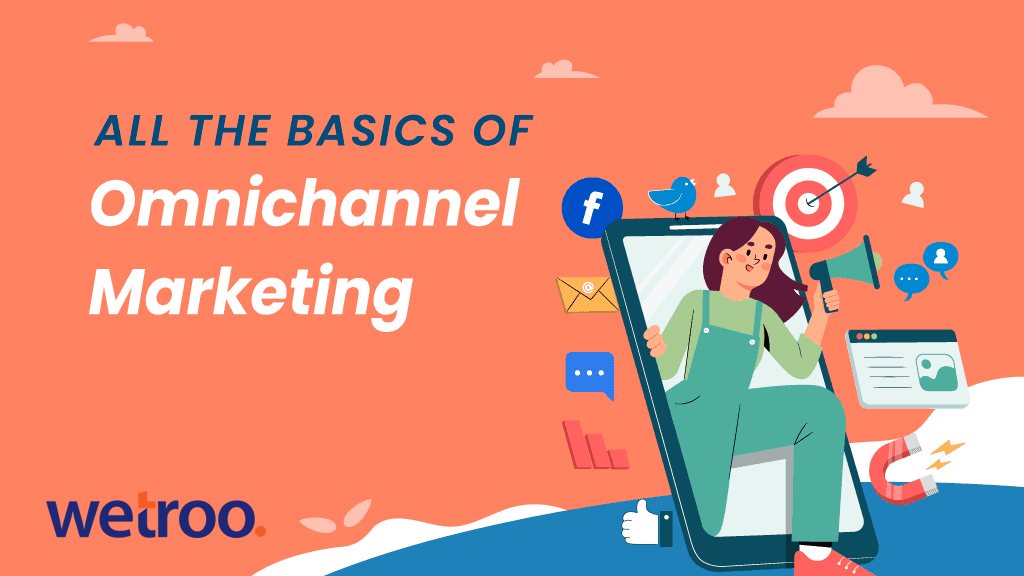The Future Of Omnichannel Marketing: Trends And Projections
Businesses in the modern digital era continually strive to engage customers and distinguish themselves from the competition.

Businesses in the modern digital era continually strive to engage customers and distinguish themselves from the competition. A game-changer, omnichannel marketing enables companies to give customers a unified, integrated experience across all their touchpoints. In this post, we'll examine the elements of omnichannel marketing, its applications, and the most recent developments and future outlooks.
The term "omnichannel marketing" describes the combination of several offline and internet channels to give clients a seamless and tailored experience. Its main goal is to deliver a consistent message and brand experience across numerous touchpoints, including websites, mobile apps, social media platforms, and physical stores.
Strong customer data management is essential for successful multichannel marketing. Businesses can learn much about customers' tastes, activities, and buying habits by utilizing customer data. These data-driven insights power individualized and focused marketing strategies.
Businesses must ensure that channels are smoothly integrated to create a seamless omnichannel experience. This entails coordinating messaging, branding, and user experience across all touchpoints so that customers can swiftly switch between channels.
Personalization is essential in omnichannel marketing. Businesses may produce highly relevant and targeted messaging that is suited to individual interests by utilizing customer data. Personalization increases customer loyalty, consumer engagement, and, eventually, sales.
In omnichannel marketing, automation is essential. Automation allows firms to concentrate on strategic projects and provide excellent client experiences. Marketing automation streamlines consumer segmentation, lead nurturing, and campaign management.
Businesses can map and improve customer journeys using omnichannel marketing, delivering a smooth experience from discovery to purchase and beyond. Businesses can create enduring customer relationships by offering consistent messaging and a cohesive brand experience.
Social media sites are now important platforms for interacting with customers. You can interact with customers, increase brand recognition, and promote conversions by including social media in your omnichannel marketing plan.
Mobile marketing has become crucial for contacting clients on the go due to the proliferation of smartphones. Your marketing campaigns will run more smoothly across all channels if optimized for mobile devices. You can use mobile apps, SMS marketing, push notifications, and location-based services to reach your target audience at the right time.
Email is still a potent tool for building strong client relationships. You may send tailored emails based on consumer behavior and preferences by including email marketing automation in your omnichannel strategy. Customers can be led through their journey and kept interested by using automated email sequences that are started in response to certain events or milestones.
Omnichannel marketing will be transformed by artificial intelligence (AI) and machine learning (ML). These tools can automate personalized messages, evaluate enormous volumes of client data, and forecast behavior. The consumer experience will be improved through recommendation engines and AI-powered chatbots.
Voice and visuality searches are growing in popularity. It will be essential to include these technologies in omnichannel marketing plans. Businesses will be able to attract the attention of voice-activated assistants and visually-driven search platforms by optimizing content for voice queries and visual search.
Hyper-personalization is the key to the success of omnichannel marketing. Businesses can offer highly customized experiences in real-time due to advanced analytics and AI-driven insights. Engagement and consumer happiness will increase when offers, suggestions, and content are customized to individual interests.
AR and VR technology will change the omnichannel environment. Companies can use AR and VR to exhibit their products, provide virtual try-ons, and develop engaging brand experiences. Customers will be more engaged, and interesting interactions will result.
The future of omnichannel marketing seems bright as we move forward. Businesses may build solid customer relationships, increase income, and a competitive edge by implementing the elements of omnichannel marketing, utilizing customer data, and anticipating upcoming trends.
You need a strong sales automation algorithm to advance your sales process. Wetroo helps companies streamline their sales processes, raise conversion rates, and increase income.
You can create campaigns, landing pages, and web stores, as well as monitor team performance and more. Since we value outcomes, we've created a comprehensive CRM and lead Management Services (LMS) bundle. So, make the difference now.